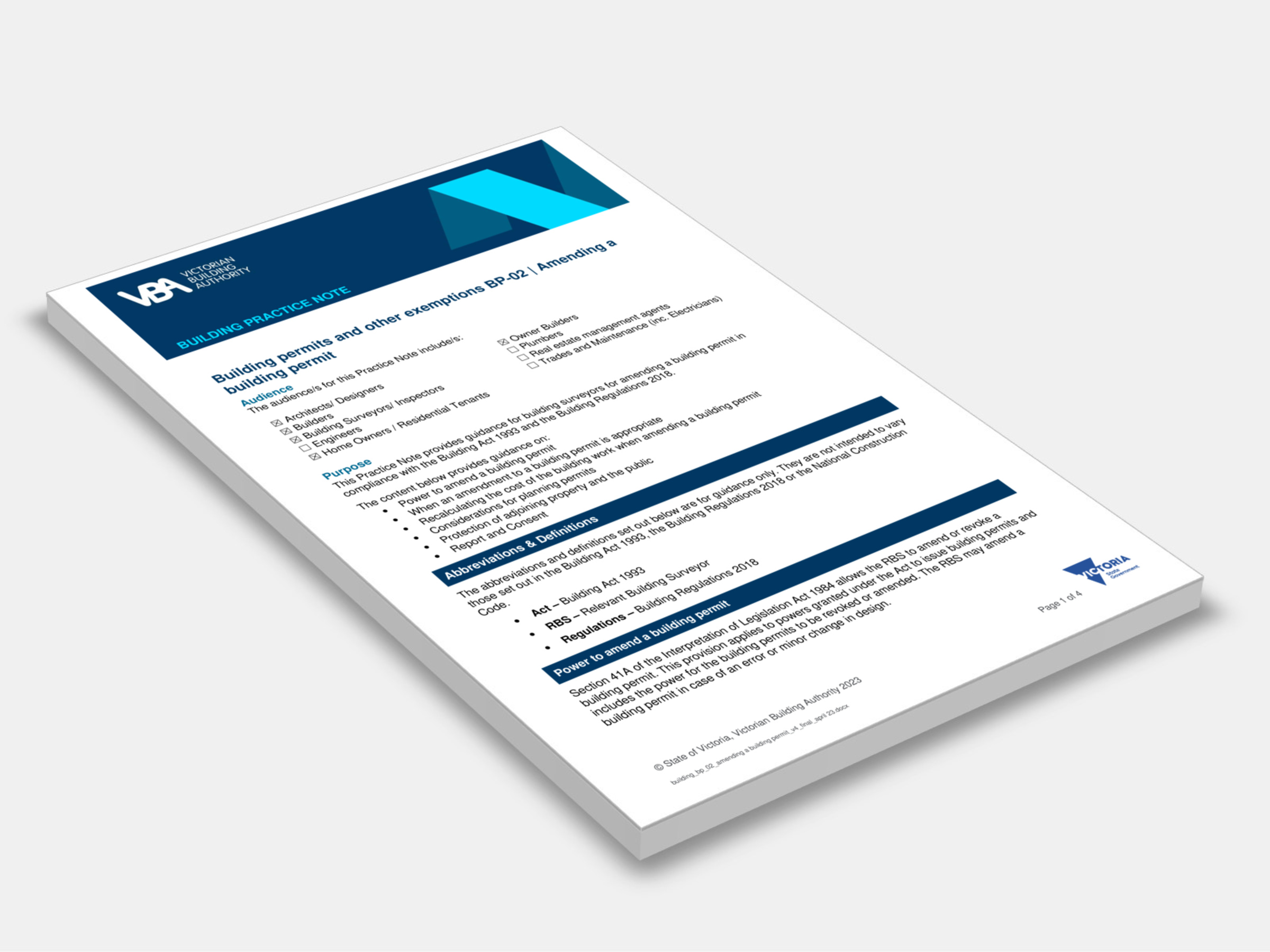
Type
Publisher
Victorian Building Authority
Publisher
Victorian Building Authority
Version:
2023.
(Current)
Short Description
This Practice Note provides guidance for building surveyors for amending a building permit in compliance with the Building Act 1993 and the Building Regulations 2018.
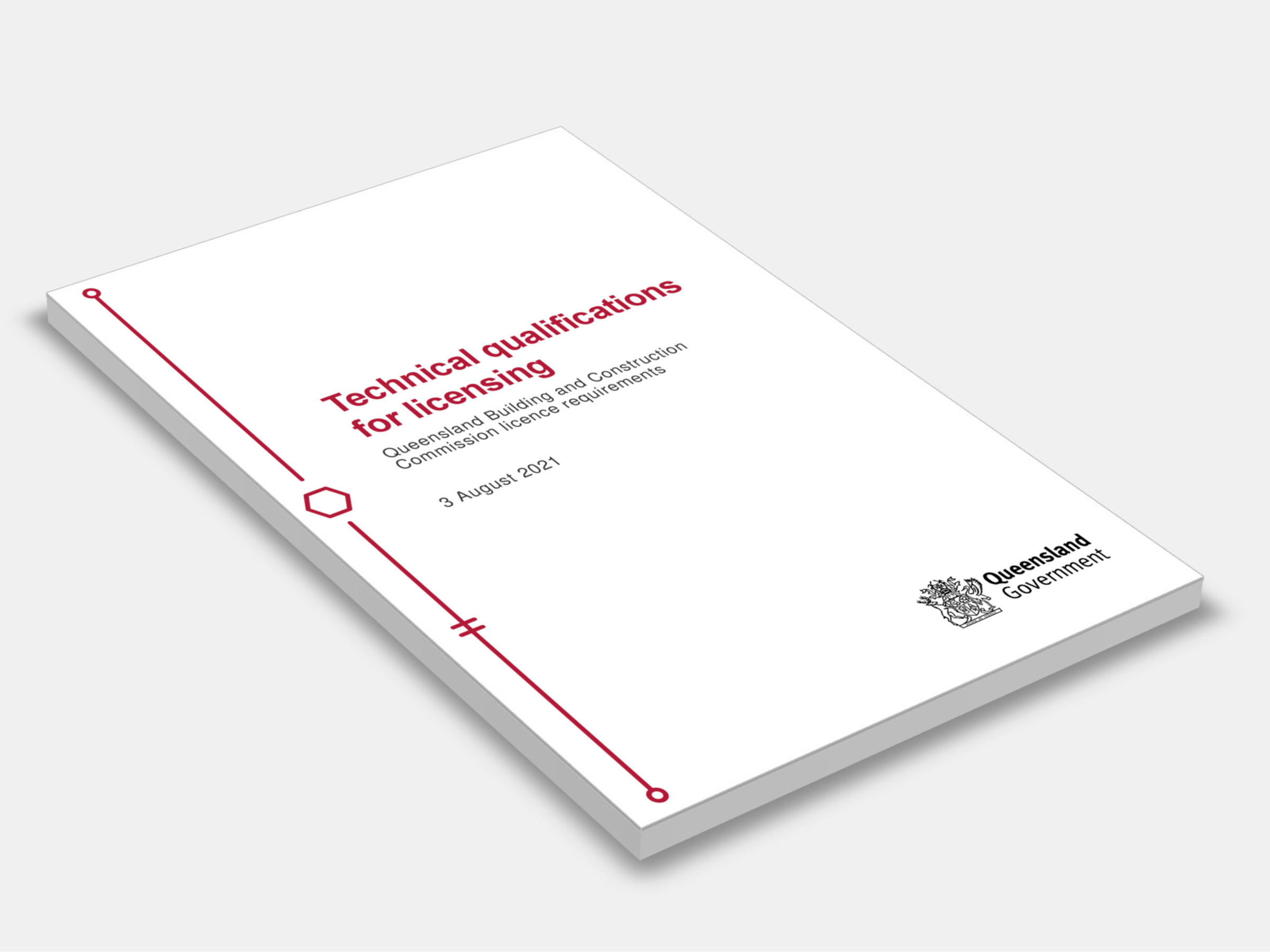
Type
Publisher
Queensland Government
Publisher
Queensland Government
Version:
2021.
(Current)
Short Description
Sets out the technical qualifications required for each class of licence under Schedules 2, 3 and 3A of the QBCC Regulation.
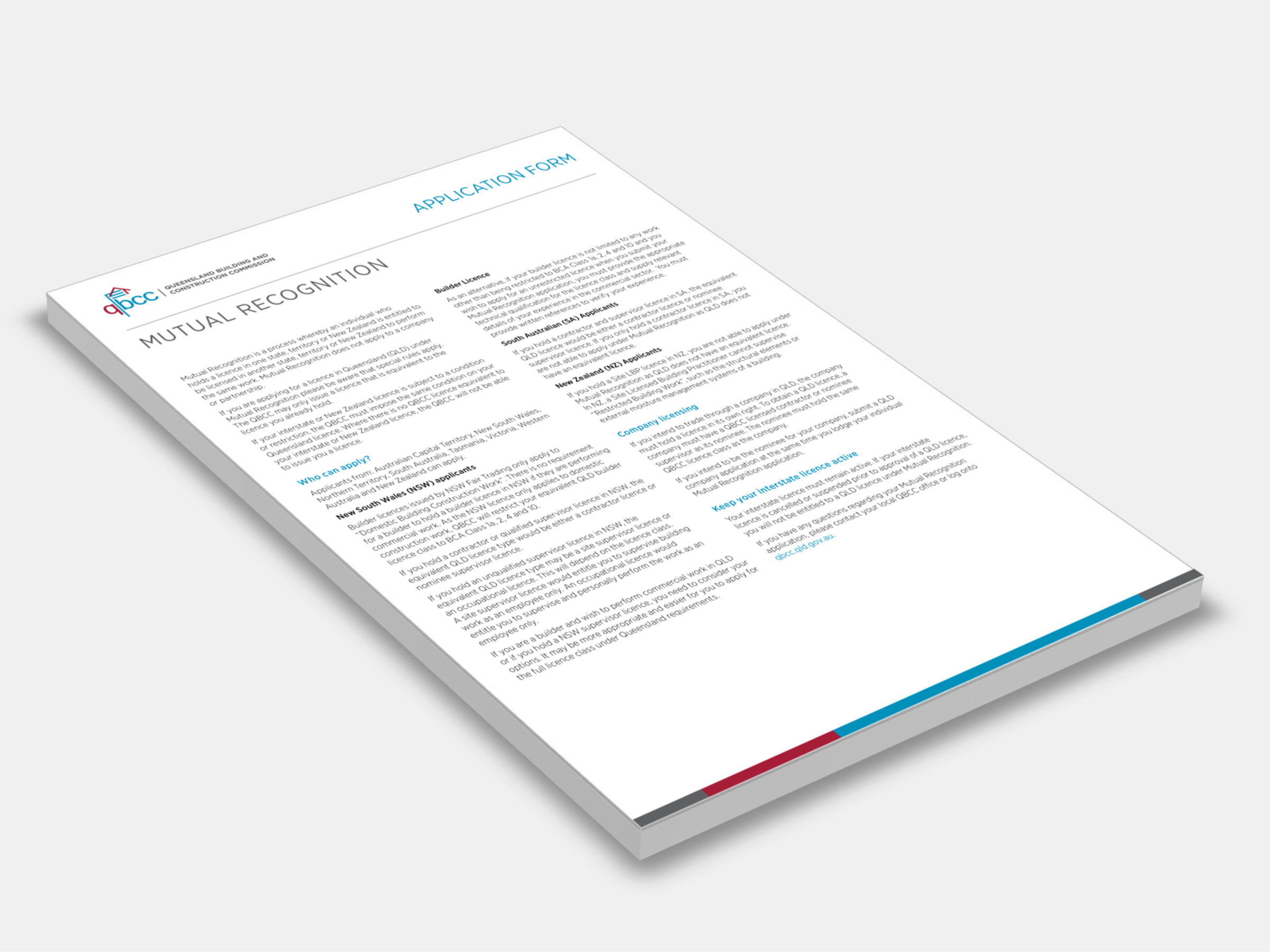
Type
Publisher
Queensland Building And Construction Commission
Publisher
Queensland Building And Construction Commission
Version:
2022.
(Current)
Short Description
Applicants from: Australian Capital Territory, New South Wales, Northern Territory, South Australia, Tasmania, Victoria, Western Australia and New Zealand can use this form.
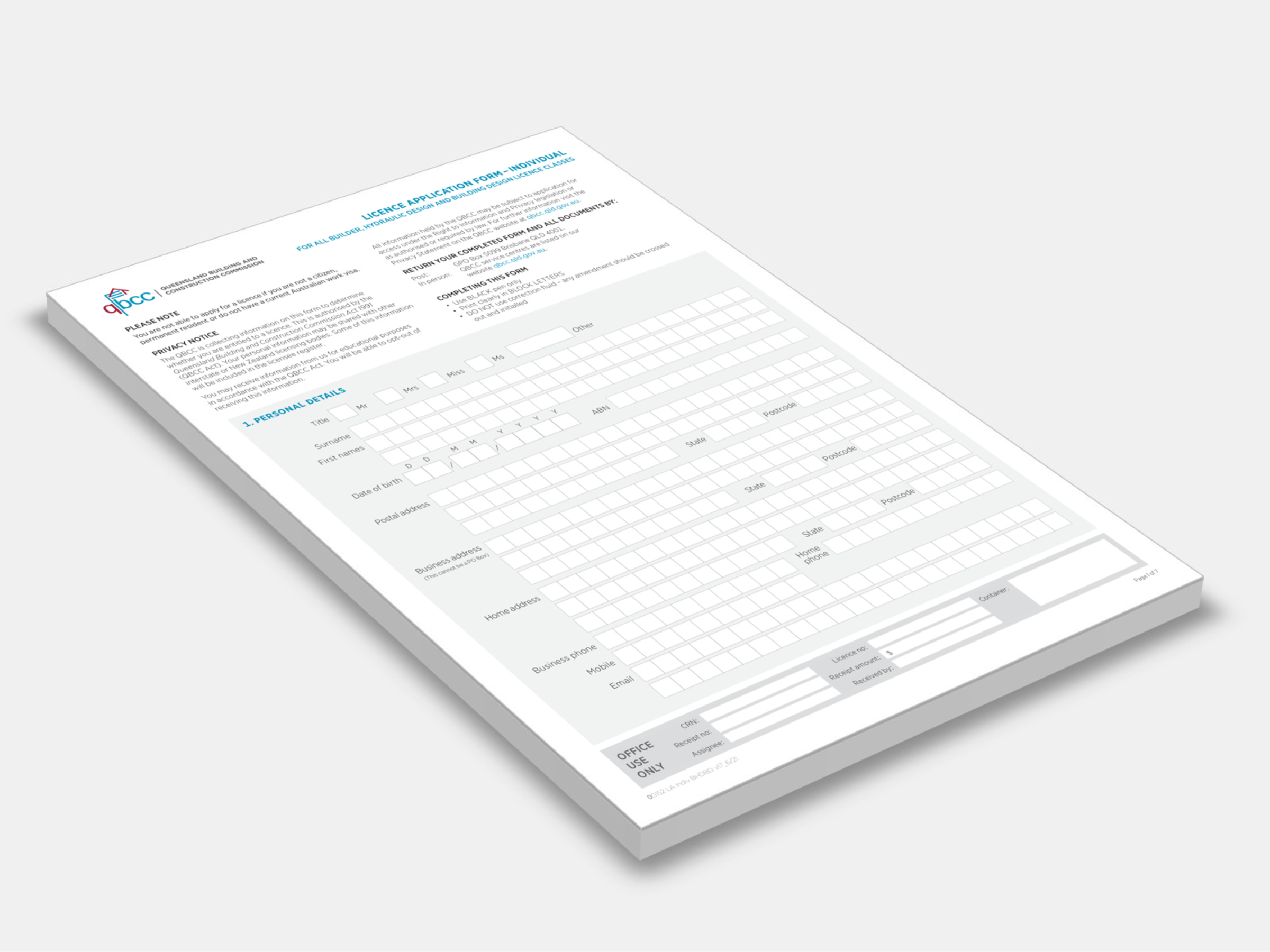
Type
Publisher
Queensland Building And Construction Commission
Publisher
Queensland Building And Construction Commission
Version:
2021.
(Current)
Short Description
You are not able to apply for a licence if you are not a citizen, permanent resident or do not have a current Australian work visa.
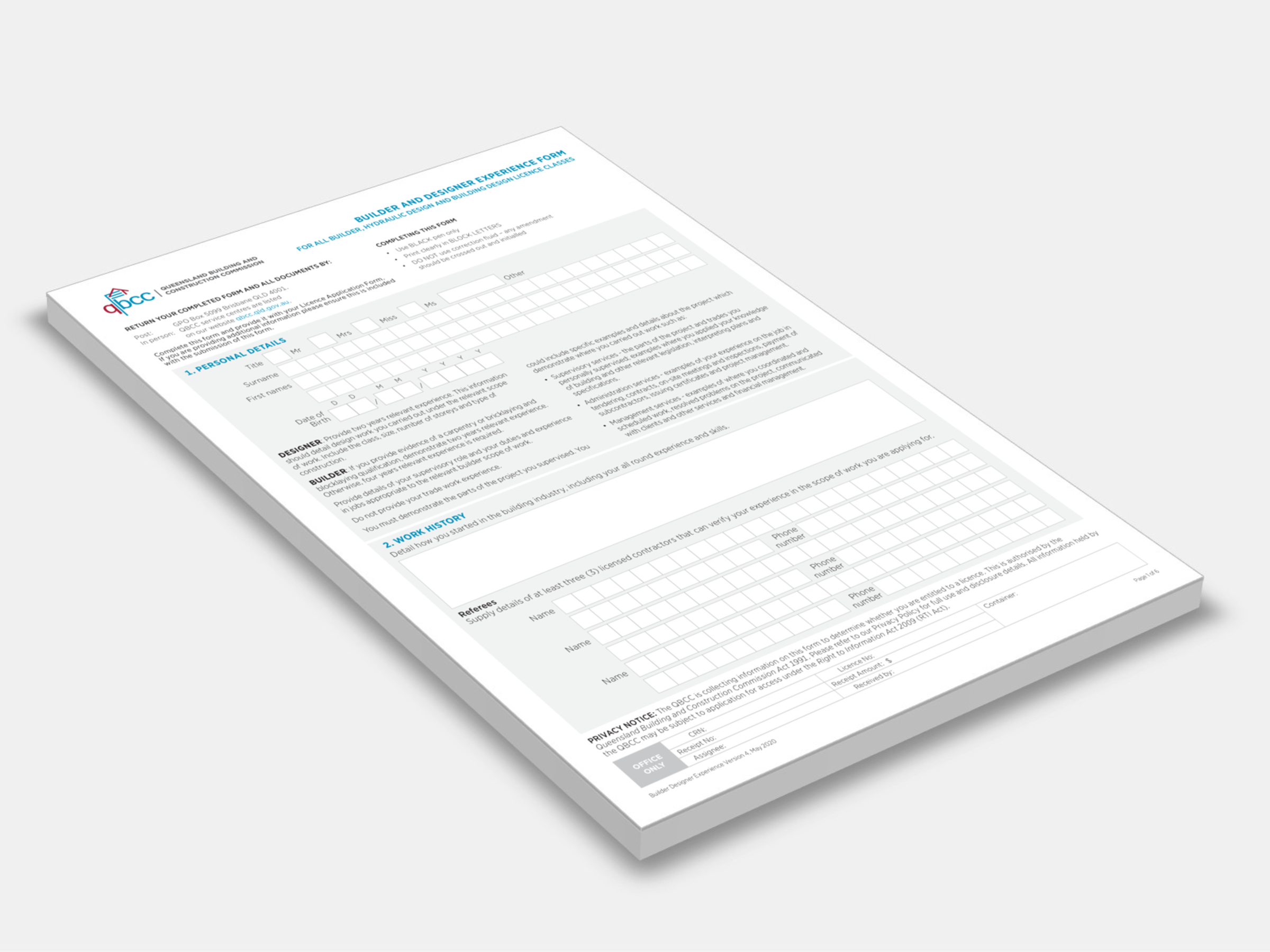
Type
Publisher
Queensland Building And Construction Commission
Publisher
Queensland Building And Construction Commission
Version:
2020.
(Current)
Short Description
Builder And Designer Experience Form.
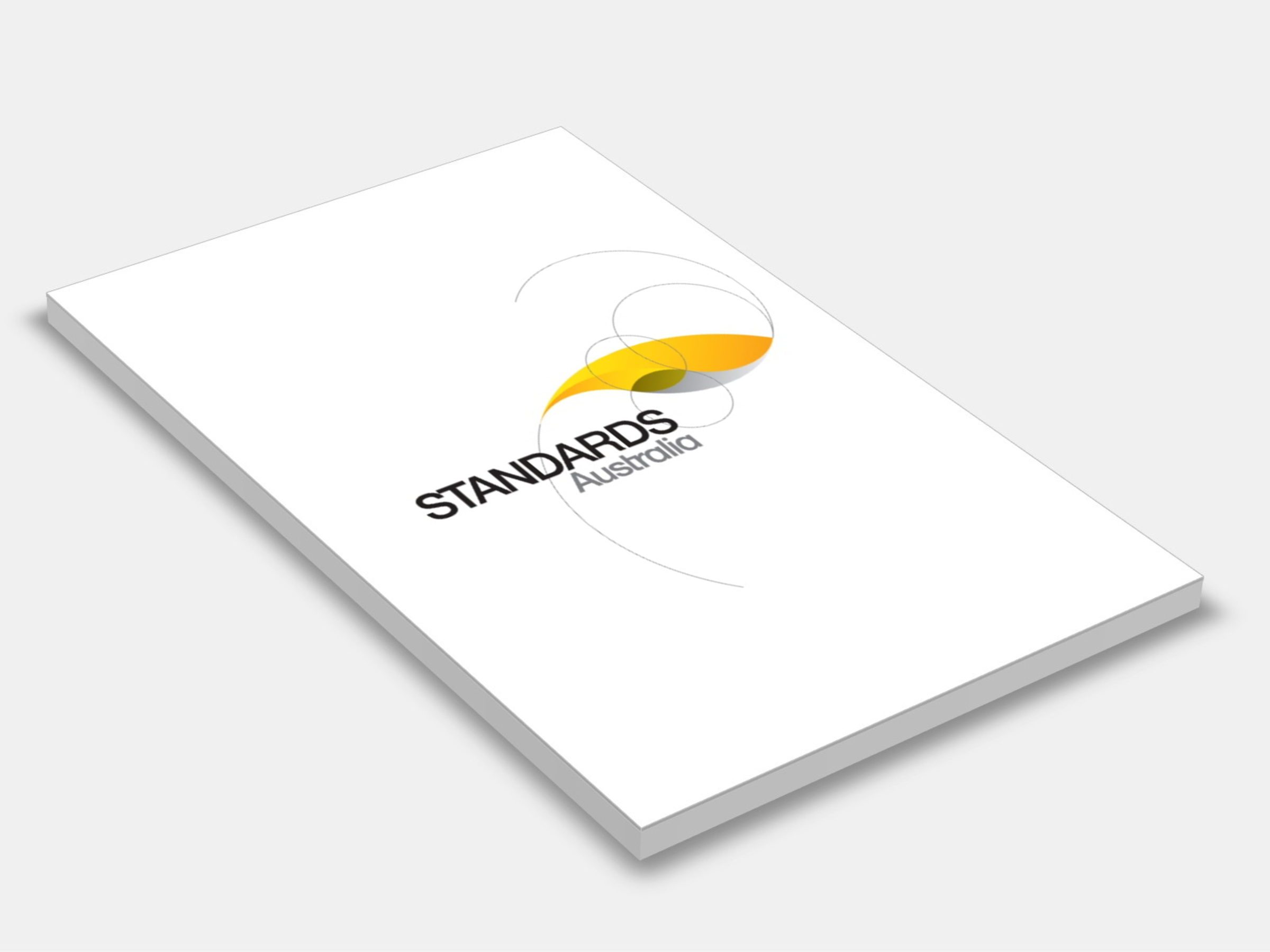
Type
Publisher
Standards Australia
Publisher
Standards Australia
Version:
Sixth Edition 2017.
(Current)
Short Description
Provides requirements for the planning, design, construction, and safe operation of all installations in which flammable or combustible liquids are stored or handled. In separate sections it deals with minor storage, package storage and handling, storage in tanks, fuel dispensing, piping and tank auxiliaries, operations and fire protection facilities. Appendices deal with tank venting, combustion characteristics, fire exposure protection, gas-freeing precautions and principles, and power station and grid transformers.
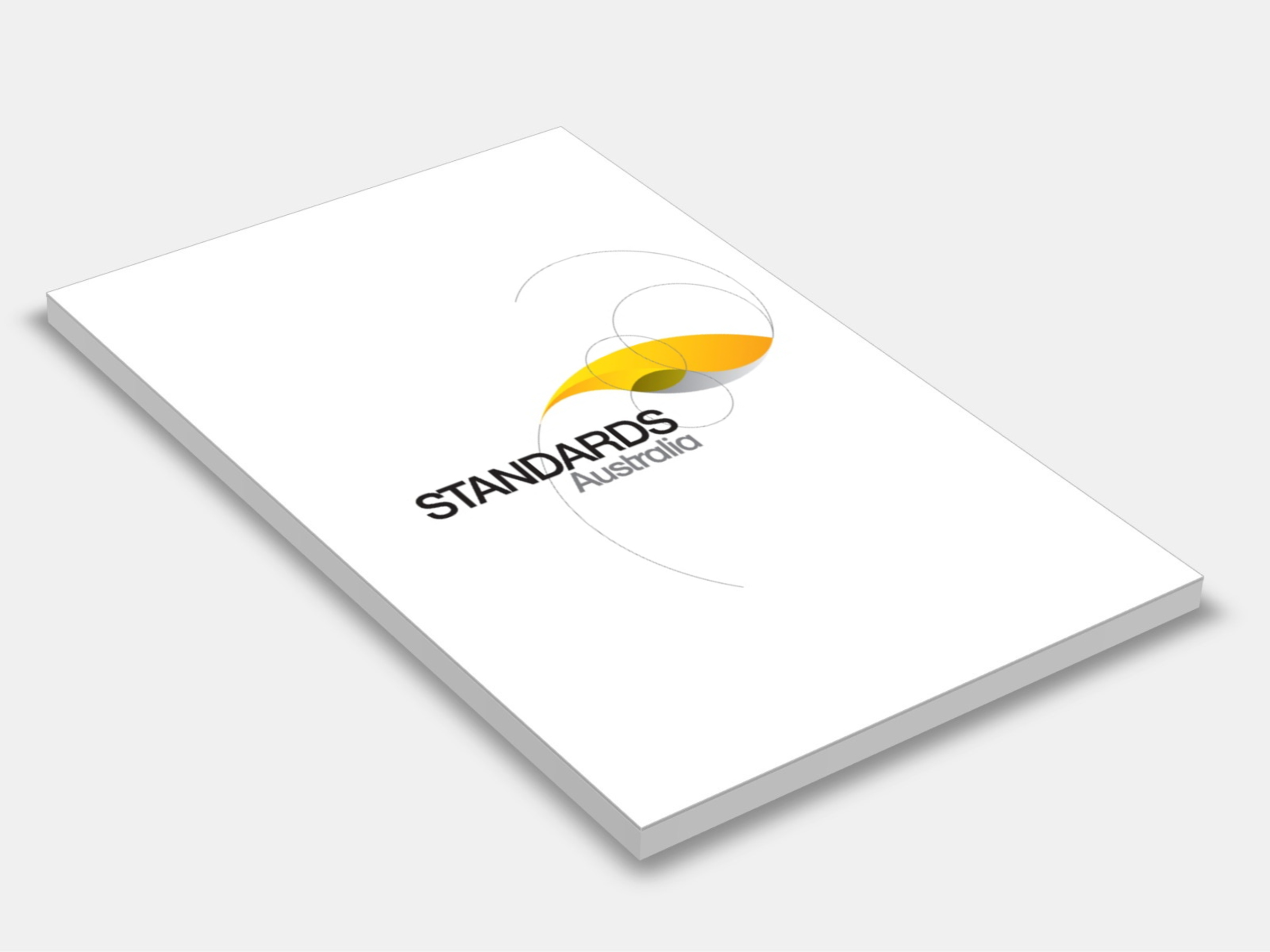
Type
Publisher
Standards Australia/Standards New Zealand
Publisher
Standards Australia/Standards New Zealand
Version:
Third Edition 2003.
(Current)
Short Description
Specifies requirements for the design, construction, location, and operation and testing of systems for the storage and handling of anhydrous ammonia. Requirements for the management of emergencies involving anhydrous ammonia and for the fire protection associated facilities are also specified.
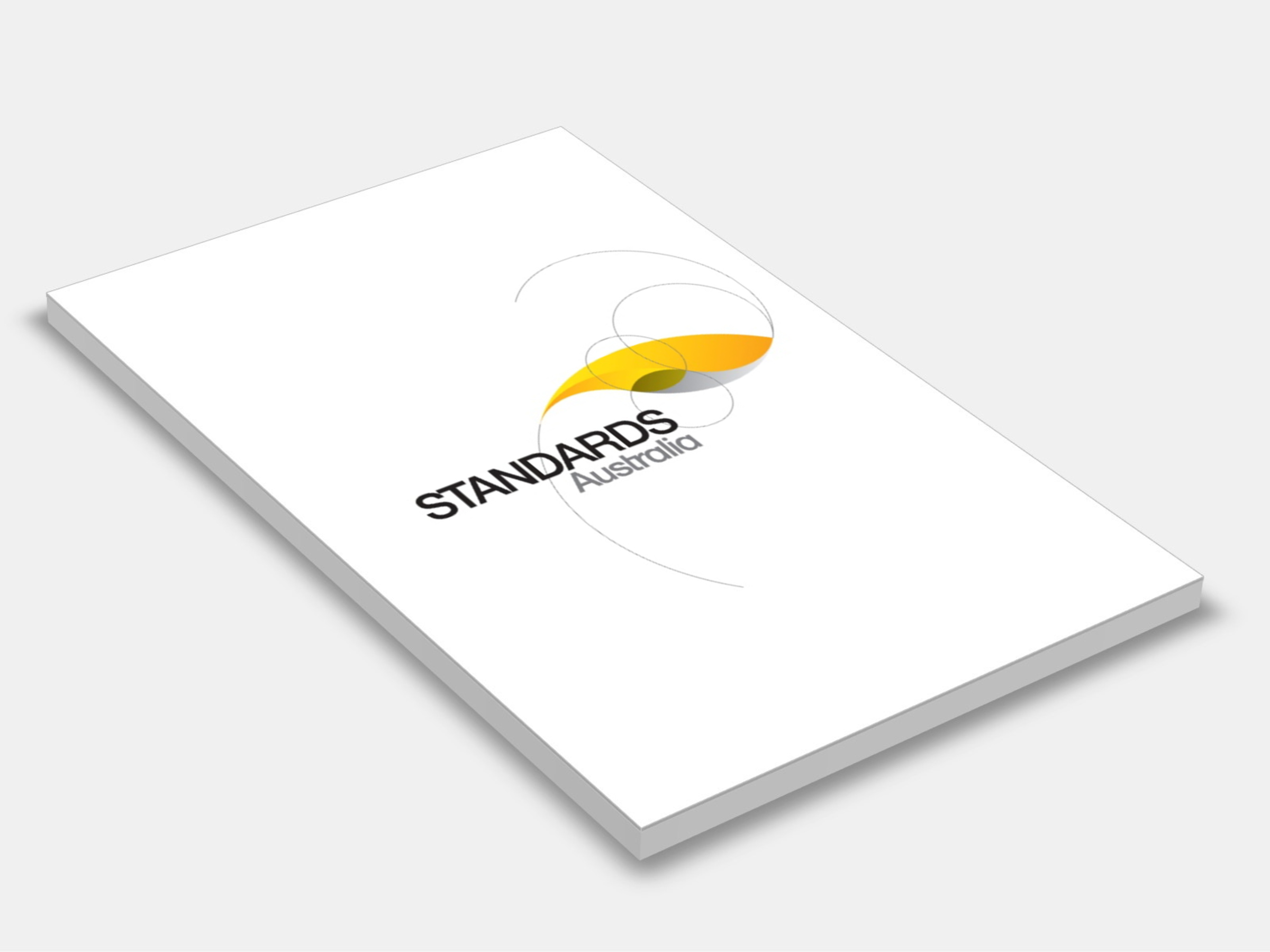
Type
Publisher
Standards Australia
Publisher
Standards Australia
Version:
Second Edition 2004.
(Current)
Short Description
Sets out requirements and recommendations for the storage and handling of gases in cylinders, as classified as Class 2 dangerous goods in the ADG Code. It applies to stores where individual gases (other than those which are covered by specific Australian Standards) are kept, and to stores where more than one type of gas is kept. Requirements for the location, construction and ventilation of stores are given. Recommendations for the management of emergencies and actions in the event of fire are provided in appendices.
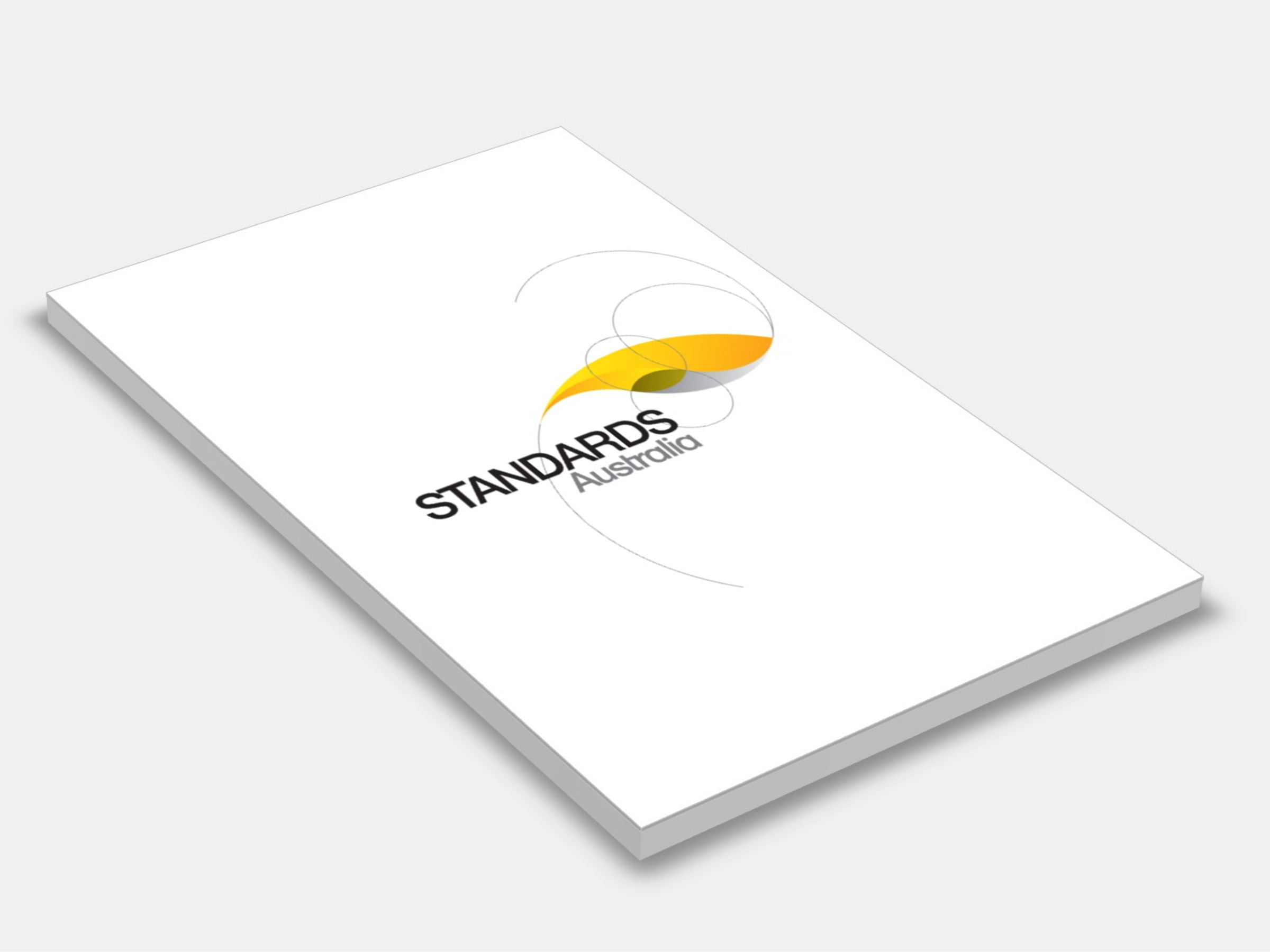
Type
Publisher
Standards Australia/Standards New Zealand
Publisher
Standards Australia/Standards New Zealand
Version:
First Edition 1997.
(Pending Revision)
Short Description
Sets out requirements and recommendations for the storage and handling of toxic substances that in Australia, meet the Class 6.1 classification criteria of the ADG Code and in New Zealand, the Class 6.1 classification criteria of the IMDG Code and Schedules 1-4 of the New Zealand Toxic Substances Regulations 1983. The Standard applies to Class 6.1 substances and may also apply to substances of other classes having a 6.1 Subsidiary Risk. A discussion of the hazards presented by toxic substances and a bibliography of documents providing guidelines on the preparation of emergency plans are provided in appendices.
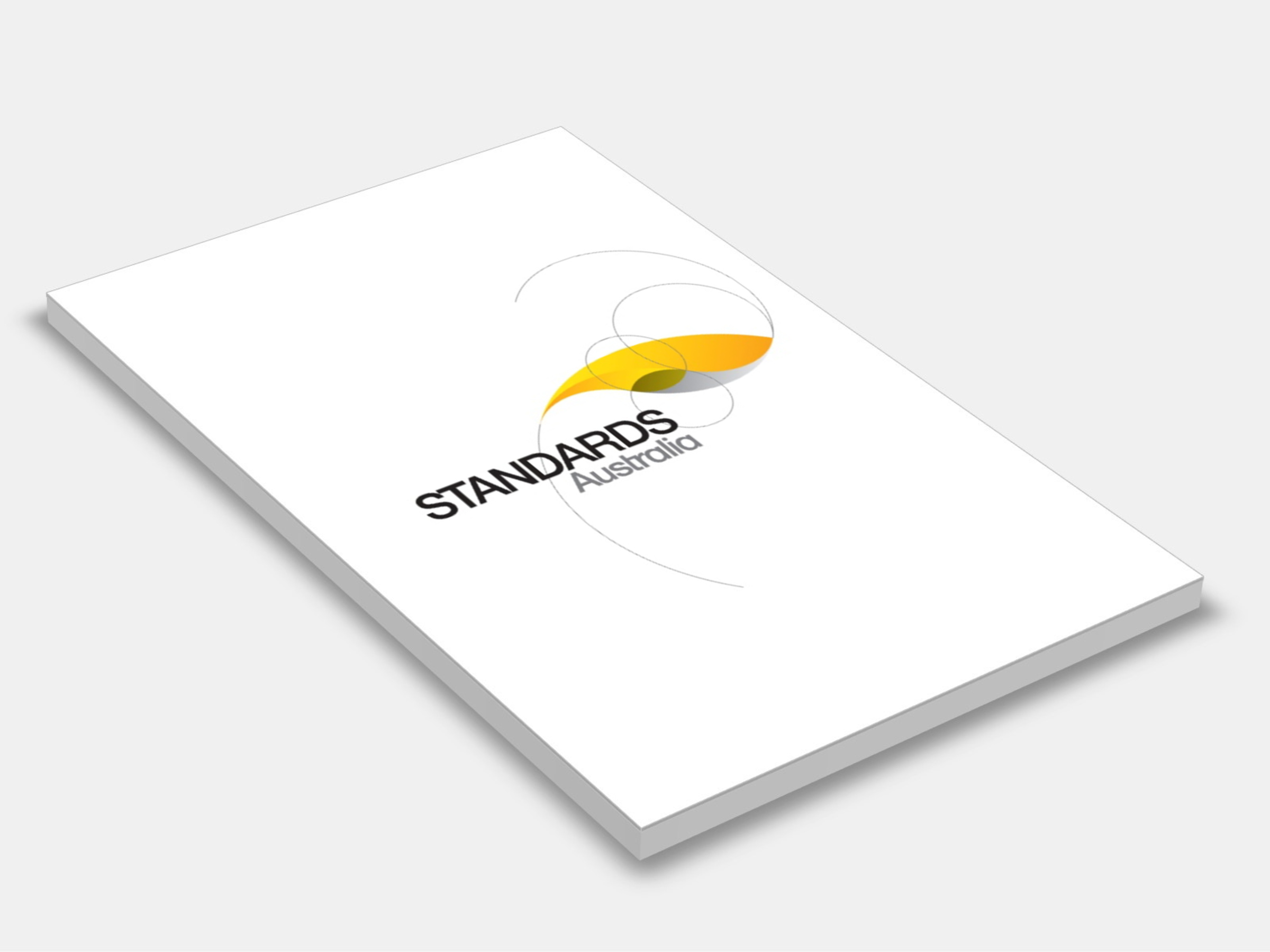
Type
Publisher
Standards Australia/Standards New Zealand
Publisher
Standards Australia/Standards New Zealand
Version:
First Edition 2000.
(Pending Revision)
Short Description
Sets out requirements and recommendations for the safe storage and handling of Class 9 (miscellaneous) dangerous goods and articles, in packages, IBCs and bulk. Advice is given on fire protection, waste disposal, operations and personnel safety. Guidelines for emergency procedures are also provided.